Foreword
“The Tang Prize: Taiwan could be the biggest winner, ”a full-page report on Taipei Times’ May 24 issue, accords the Foundation recognition for the wide influence the prize itself and the Tang research grant can exercise. More than just selecting winners and organizing award ceremonies, the Foundation also provides its laureates with a grant of NT$10 million, in addition to the NT$40 million prize money, to help them carry out projects related to their fields, be they research works, educational promotions or any other programs. In turn, the Tang Prize can increase its impact through the undertakings and the high reputation of its winners to make more contributions to the world.
This newsletter features three reports about Dr. Brundtland and Prof. de Bary. The “Gro Brundtland Week of Women in Sustainable Development” is a significant event that National Cheng Kung University, entrusted by Dr. Brundtland, inaugural Tang Prize winner in Sustainable Development, has organized for three years in Taiwan. Besides encouraging more female scientists to engage themselves in research about sustainable development, Dr. Brundtland also designated part of her Tang grant for the protection of elephants in Africa. These pachyderms, once on the verge of extinction, are natural diviners of water sources, from which generations of people have been benefited. On the other hand, Dr. Rachel E. Chung, former executive director of University Committee on Asia & the Middle East at Columbia University and a protégé of Prof. de Bary, 2016 Tang Prize winner in Sinology who was given the epithet “Confucius of the West,” brought some of the finest minds from Columbia University to Taiwan to attend the Symposium Taiwan Project events. As an extension of Columbia’s core curriculum Prof. de Bary also helped develop, the project promotes study of world classics to initiate more cross-cultural conversations. Three different stories, one uplifting message: every step taken by our laurates is indeed a testimony to the true value of the Tang research grant!
Finally, after a year’s hard labor, we are pleased to present to you The Persevering Spirits: the 2018 Tang Prize Laureates. Arranged for publication on July 22, this book will tell you how our laureates managed to make the impossible possible, thus turning their dreams into reality.
|
|
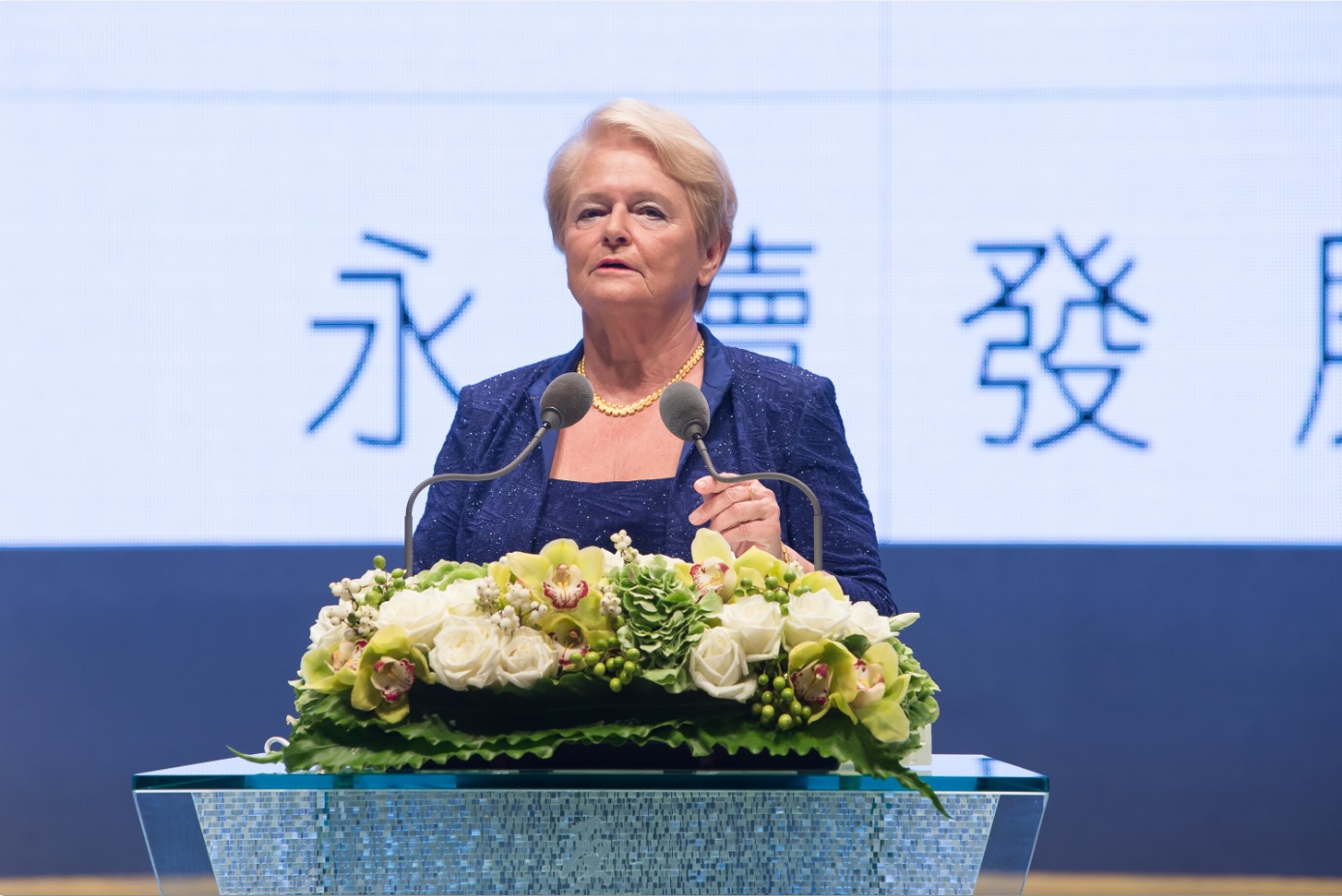 Tang Research Grant Story I: Tang Prize Laureate in Sustainable Development Encourages Young Female Scientists to Step Up
“We have to help women come ahead,” said Gro Harlem Brundtland, the first female prime minister of Norway and 2014 Tang Prize winner in Sustainable Development. Dedicating her entire life to promoting the sustainable development of human civilization, Dr. Brundtland is the pioneer in this field who wants to make sure that the torch will be passed on to the younger generation, so that outstanding scientists around the world will be able to give full play to their abilities. So far, the research grant she received from the Tang Prize Foundation has honored and assisted 15 female public health researchers from developing countries, who have visited Taiwan to share their research outcomes, and set up the arena for more interactions and collaborations which are expected to have profound impact on the future of mankind.
Dr. Brundtland decided to allocate her Tang Prize research funding (NT$10 million) to two projects, on the one hand as an award to encourage young female scholars, and on the other as a means to preserve the environment in Africa. To achieve the first goal, she founded the “Gro Brundtland Award,” and entrusted National Cheng Kung University (NCKU) with the selection and awarding of female scientists from developing countries working in the fields of public health or environmental protection. Since 2016, NCKU has been organizing various events during the annual “Gro Brundtland Week of Women in Sustainable Development,” and many awardees also made long trips to Taiwan in order to participate in these special occasions. For the past three years, more than two thousand teachers and students have attended the lectures arranged by NCKU, extending the exchange of ideas between young scholars from academy to school campuses.
15 recipients of the “Gro Brundtland Awards” hail from different countries, including Pakistan, Bangladesh, Jordan, Yemen, India, Kenya, Malaysia, the Philippines, Uganda, South Africa and Taiwan. Coming from Pakistan and Bangladesh which do not have diplomatic ties with Taiwan, three awardees had to overcome enormous obstacles to arrive in this island, and the effort they expended is a concrete manifestation of their unswerving devotion to the sustainability of human societies.
To watch the full documentary of this project, please visit the official website of the Tang Prize or our Youtube channel.
For more information
|
|
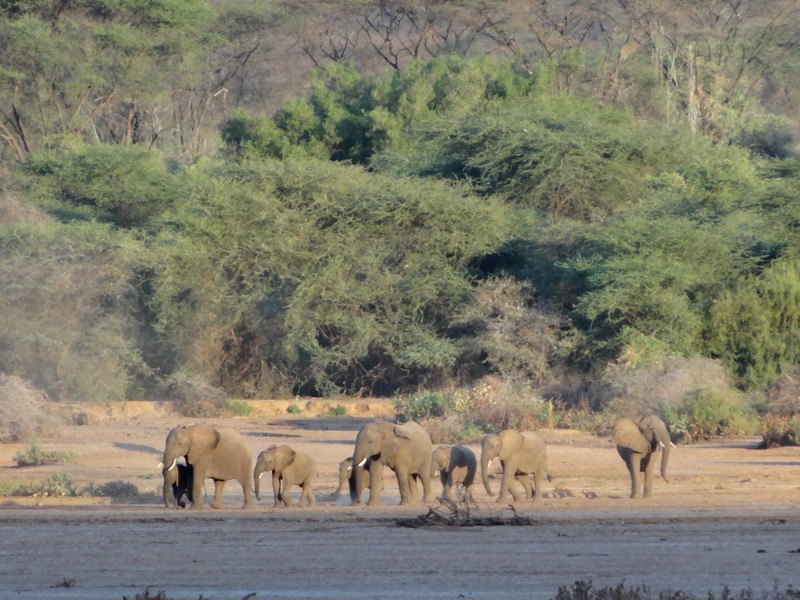 Tang Research Grant Story II: Elephants are Back! Thanks to the Tang Prize Laureate
One thing that distinguishes the Tang Prize from other awards is that, in addition to the prize money of NT$ 40 million, there is also a research grant of NT$10 million at the winners’ disposal, allowing them to realize their dreams of making the world a better place. One of the happy stories we want to share here is about Kenya’s Milgis Trust, the recipient and executor of the Tang Prize grant declared by the inaugural laureate in Sustainable Development, former Norwegian Prime Minister Gro Harlem Brundtland, who allocated NT$5 million to be used for the protection of wildlife, ecology and cultural assets in the country’s Matthews Range. As a response to the conservation efforts of the Trust, herds of elephants, once almost driven to extinction, have remerged to traverse the habitat again.
There was a time when African elephants could roam freely in the wilderness, but then they became the target of ruthless poachers who kill these grand creatures for their ivory tusks, often sold as pricey commodities in black markets. To our great delight, the financial aid from Dr. Brundtland has enabled the Milgis Trust to form groups of rangers to patrol the protected area which spans over 6000 square km, thus successfully bucking the trend of over-poaching wild elephants. Adding to this endeavor are running projects to educate people about the elephants’ impact on the entire ecosystem, as well as promoting camel safaris to create more job opportunities for the locals.
Elephants play an important role in the eco-sustainability in Africa, because they are Nature’s diviners of water. They know where to dig holes for water, from which other animals and mankind as well have greatly benefited, especially in dry seasons when the water table tends to be very low. According to the Trust’s March report, recently the habitat has been plagued by frequent drought periods and mountain fires. The lack of water and the leeward slops made it nearly impossible to put out the fires. Now elephants are back to help other lives living in the same ecosystem to locate sources of water. Their reappearance is certainly a great boost to the morale of local conservationists.
For more information about the Milgis Trust, please visit their website at https://www.milgistrust.com/
For the full report of this project
|
|
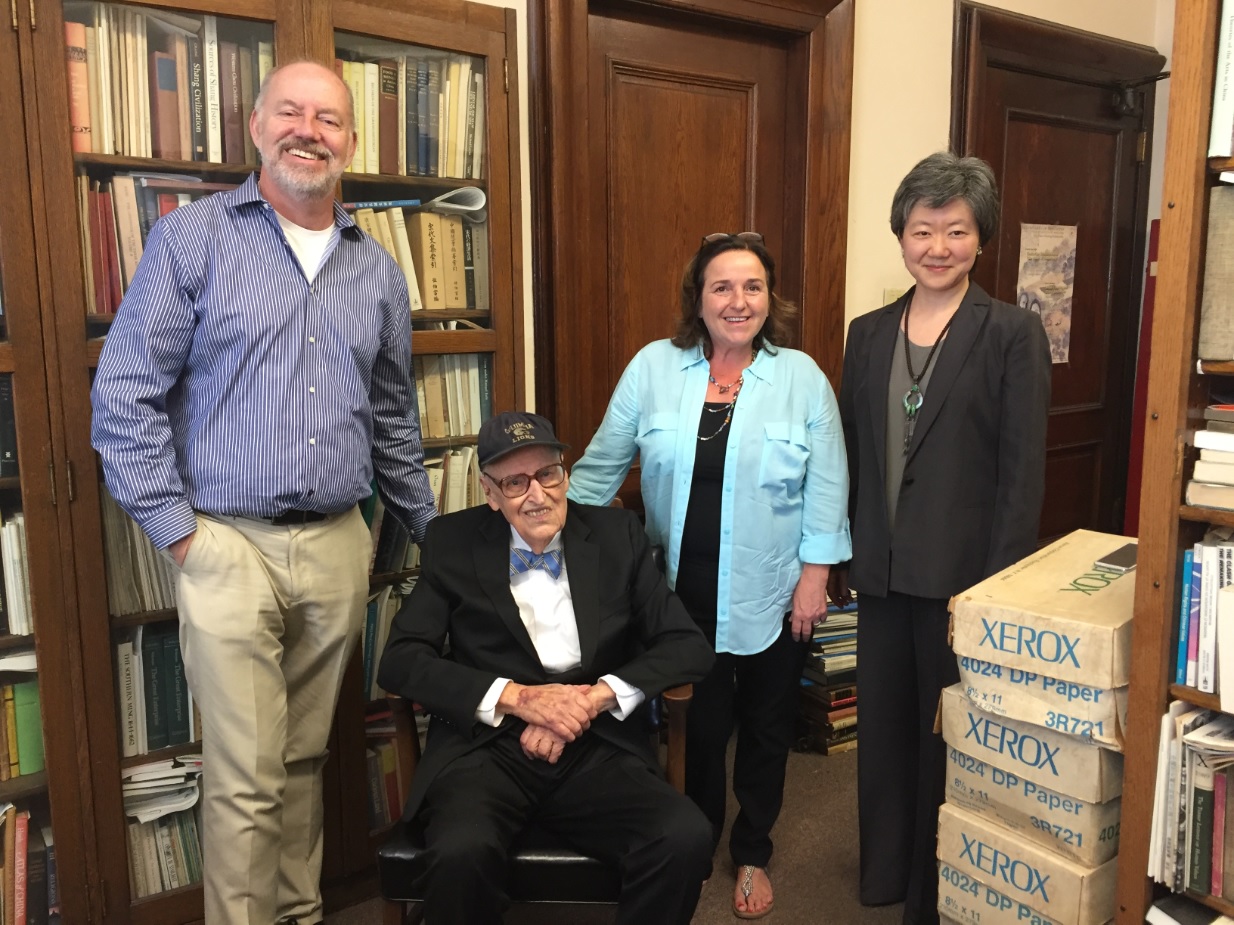 Tang Research Grant Story III: Literature Forums Inspired by Tang Prize Laureate Held in Taiwan
Dr. Rachel E. Chung, former executive director of University Committee on Asia & the Middle East at Columbia University, is a disciple of Professor William Theodore de Bary, 2016 Tang Prize winner in Sinology who extended Columbia’s undergraduate core curriculum in Western civilizations to include Asian civilization and who was also known by the epithet “Confucius of the West.” To further his initiatives and to promote the study of world classics, Dr. Chung, to whom Professor de Bary entrusted his Tang Prize grant to be used in support of his vision of making the “Great Conversation” possible across cultures, decided to allocate the entire grant, totaling NT$10 million, to the DB Global Humanities Foundation. Since 2014, she has been overseeing the Global Symposium Project, through which students in cities around the globe are trained to be discussion leaders, sharing the reading of classical literature with their peers and through which Prof. de Bary’s pedagogy of learning through dialogue has been successfully transported from the classrooms in Columbia to the international stage.
Intergenerational tension is an issue that confronts every society. What can we learn from Eastern and Western canons that will help us resolve this issue? What can a conversation that traverses civilizations of different ages and in different parts of the world tell us about the importance of reflecting on the same phenomenon in other literary texts and cultural contexts? Some good answers were provided in “Generations in Conversation: Some Greco-Roman and Renaissance Reflections on Intergenerational Dialogue,” a forum held on May 29th at National Taiwan Normal University (NTNU), featuring an interlocution between three experts from different academic arenas: Dr. Rachel Chung, Professor Gareth Williams, the Anthon Professor of the Latin Language and Literature at Columbia University, and Professor Daniel Hu, associate professor in the Graduate Institute of Translation and Interpretation at NTNU.
Delving into some of the works by major Greco-Roman and Renaissance authors, including Cicero, Virgil, Ovid and Pietro Bembo, Professor Williams gifted the audience with his meticulous examination of these classics as a way to explore issues such as generational continuity and rupture, the clash between the new values and conventions, as well as change, uncertainty and the fluidity of cultural identities. Ensuing this talk was an interlocution between Professor Williams, Dr. Chung, and Professor Daniel Hu, which sparked some probing questions from the audience eager to know “how to carry out effective conversations across different generations” and “who should initiate conversations like these.”
For more information about this forum (1)
For more information about this forum (2)
|
|
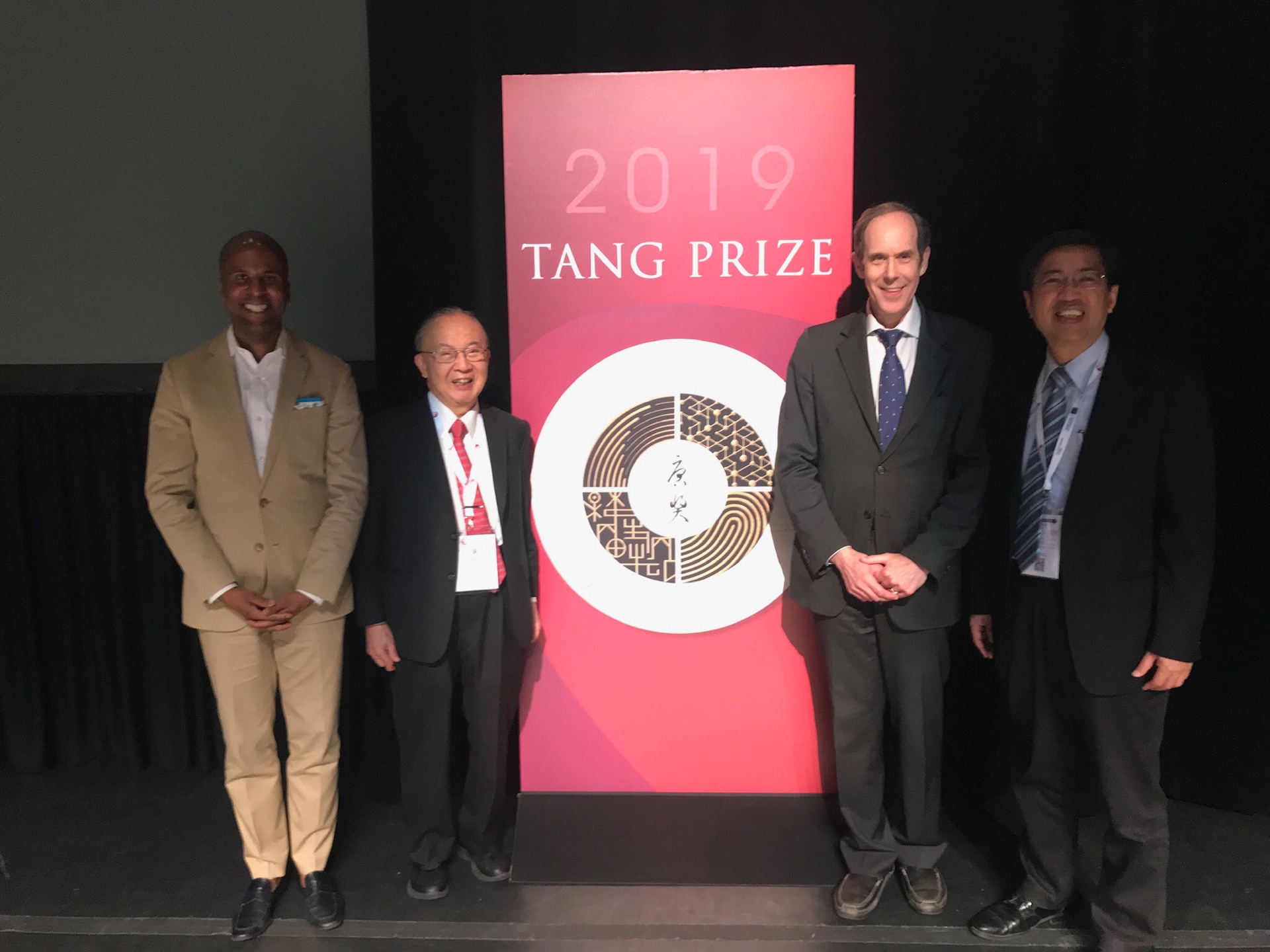 EB Hosts Tang Prize Lecture to Explore New Cancer Therapies
The evening time of April 6th in America’s Orlando saw more than three thousand people throng to the venue of the 2019 Experimental Biology (EB) Opening Tang Prize Lecture, “Imatinib as a Paradigm of Cancer Therapies,” delivered by 2018 Tang Prize laureate in Biopharmaceutical Science, Dr. Brian Druker.
The five host societies of this year’s EB are American Association of Anatomists (AAA), American Society for Biochemistry and Molecular Biology (ASBMB), American Physiological Society (APS), American Society for Investigative Pathology (ASIP), and American Society for Pharmacology and Experimental Therapeutics (ASPET). As the only major lecture co-organized by all five societies, Dr. Druker’s Tang Prize Lecture, as expected, drew a massive crowd
Shawn Boyne, executive director of AAA and the chair of 2019 EB Management Committee, stressed in his opening remarks that “together, we are working to expand awareness about the importance of basic science in understanding disease progression, prevention and eradication.” That is the motivation behind the collaboration between EB and the Tang Prize Foundation to hold the Tang Prize Lecture in the annual EB congregation since 2015. As of 2018, it has been scheduled as the opening lecture proceeding the official reception, and has always attracted the attention of all who attend the conference.
For more information about this lecture
|
|
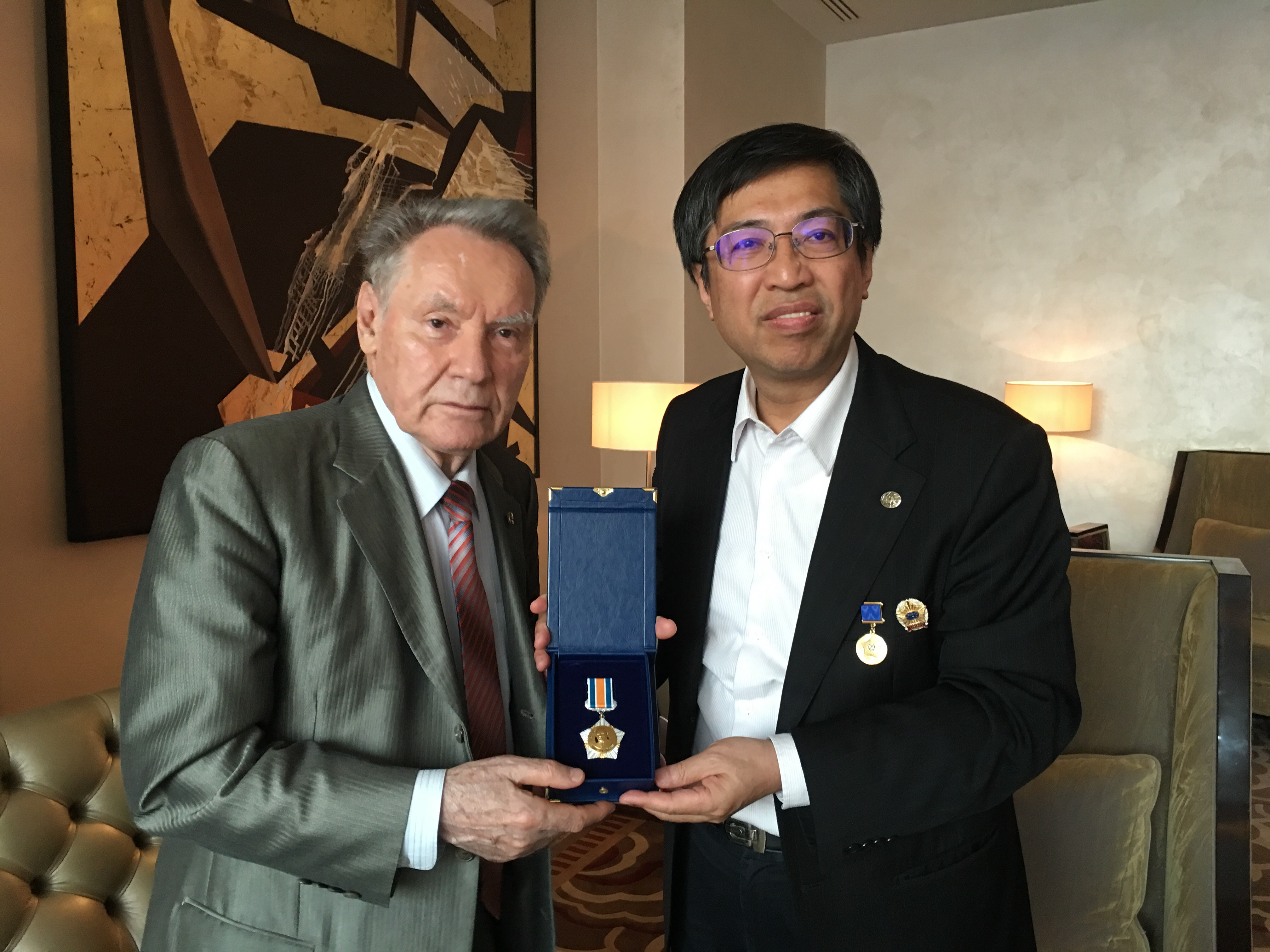 Prestigious Order Created for Founder of the Tang Prize by the International Academy of Engineering
The Russia Academy of Engineering (RAE) and the International Academy of Engineering (IAE) decided that, in addition to the order of “Engineering Fame,” they would create two more orders, including one made with a portrait of Dr. Samuel Yin, founder of the Tang Prize Foundation, to honor people who made remarkable contributions to engineering and scientific research.
Prof. B.V. Gusev, president of the RAE, announced this good news in the 2019 general assembly of the RAE and the IAE, taking place on April 26th in Moscow. He confirmed that these two new orders will be awarded to two outstanding scientists: Dr. Samuel Yin, a world-renown inventor and engineer who has claimed 566 patents for his inventions in the field of building construction technology and is especially lauded for developing an efficient and precise method for constructing earthquake-resistant structures, as well as Mr. Boris Evgenievich Paton, the legendary Ukrainian scientist, honorary president of the IAE and president of the National Academy of Sciences of Ukraine. Turning 100 in 2018, Mr. Paton is an illustrious figure in the field of welding, metallurgy, and technology of materials and material science.
Creating orders to acknowledge the great achievements of important engineers and scientists is the highest honor the RAE and the IAE can bestow on these outstanding people, Prof. Gusev remarked. The “International Engineering Academy Star of Fame” order, with the Tang Prize medal in the background, was presented by Prof. Gusev and accepted by Dr. Jenn-Chuan Chern, CEO of the Tang Prize Foundation and president of Taiwan Chapter of International Academy of Engineering (TCIAE), on behalf of Dr. Yin. It can be seen as a token of recognition of the Tang Prize ethos: “for the betterment of the world.”
To read the full report
|
|
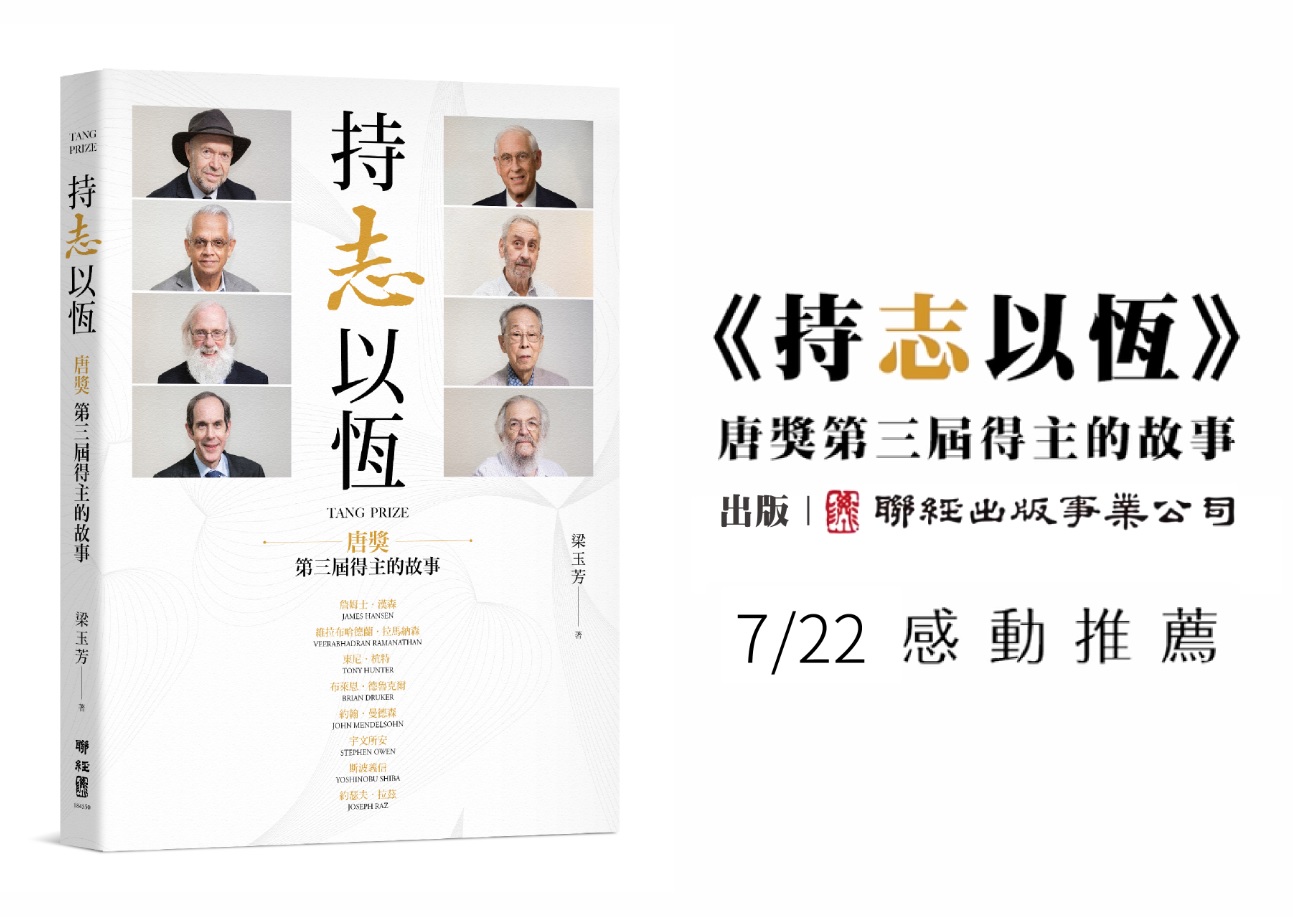 The Persevering Spirits, a Chinese Book about 2018 Tang Prize Laureates, to Hit the Market on July 22
“Young people should go for what their hearts decide. Though loving what you chose to do isn’t always an easy task, keep soldiering on, and all the efforts will eventually come to fruition.”—Samuel Yin, Founder of the Tang Prize Foundation and Chairman of Ruentex Group
“Be brave to try something new and different. Find out where your passion lies. That’s the secret to lasting happiness.”— Charng-ven Chen, Board Member of the Tang Prize Foundation
In the four award categories of the Tang Prize, namely Sustainable Development, Biopharmaceutical Science, Sinology and Rule of Law, the 2018 laureates have exited much international attention by providing scientific evidence pointing to the reality of climate change, by facilitating the development of targeted cancer therapies, by refreshing our ideas about the history and literature of the Tang and Song Dynasties, and by deepening our understanding of the nature of law as well as of legal theories. As the saying goes, “Rome wasn’t built in a day.” Likewise, great accomplishments take time and effort. Now, the laureates’ decades-long endeavor has all been chronicled in The Persevering Spirits: the 2018 Tang Prize Laureates, a Chinese book penned by veteran journalist Yu-Fang Liang and scheduled to be launched on July 22.
So what can you learn from this book? You will feel hard pressed to believe that Dr. James Hansen, winner in Sustainable Development and an activist who has testified in front of the US Congress, who has taken to the streets to raise public awareness of global warming and was even a Ted Talk speaker once, used to be a reserved and reticent scientist; you will feel inspired by how an unexpected experimental result, one which would normally make most people admit their mistakes, led our Biopharmaceutical Science laureate Dr. Tony Hunter to his great discovery; you will feel identified with Prof. Stephen Owen, recipient of the Tang Prize for Sinology, when his parents, both professors, opposed his decision of studying Chinese, fearing that he wouldn’t be able to support himself in the future and were proven wrong by his status as one of the leading authorities in American Sinology today.
For more information about the launch of The Persevering Spirits, please stay tuned to the official website and Facebook page of the Tang Prize Foundation. Moreover, the commemorative DVDs of the 2018 Tang Prize have been released in May. They contain all the important events taking place last year, such as the award ceremony, the concert, the laureates’ speeches, the Masters’ Forums, and 8 documentaries about the laureates, now all available on Youtube. If you feel intrigued, please subscribe to our Facebook page and Youtube channel to be updated on all the latest news.
|
|
